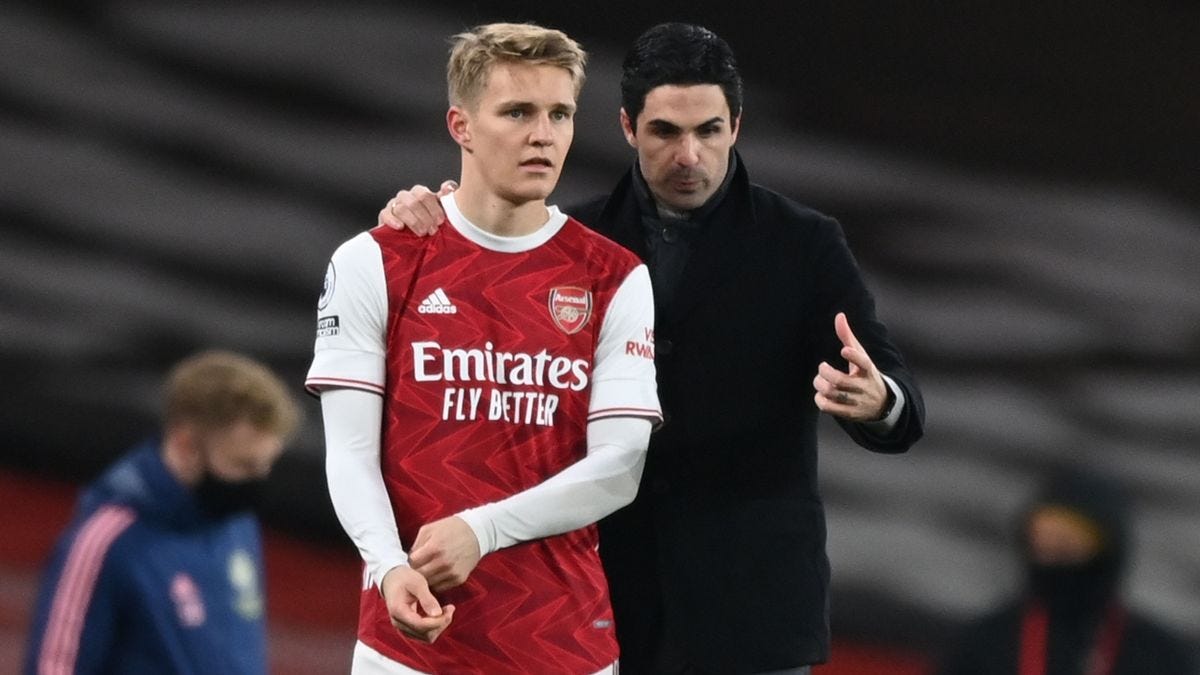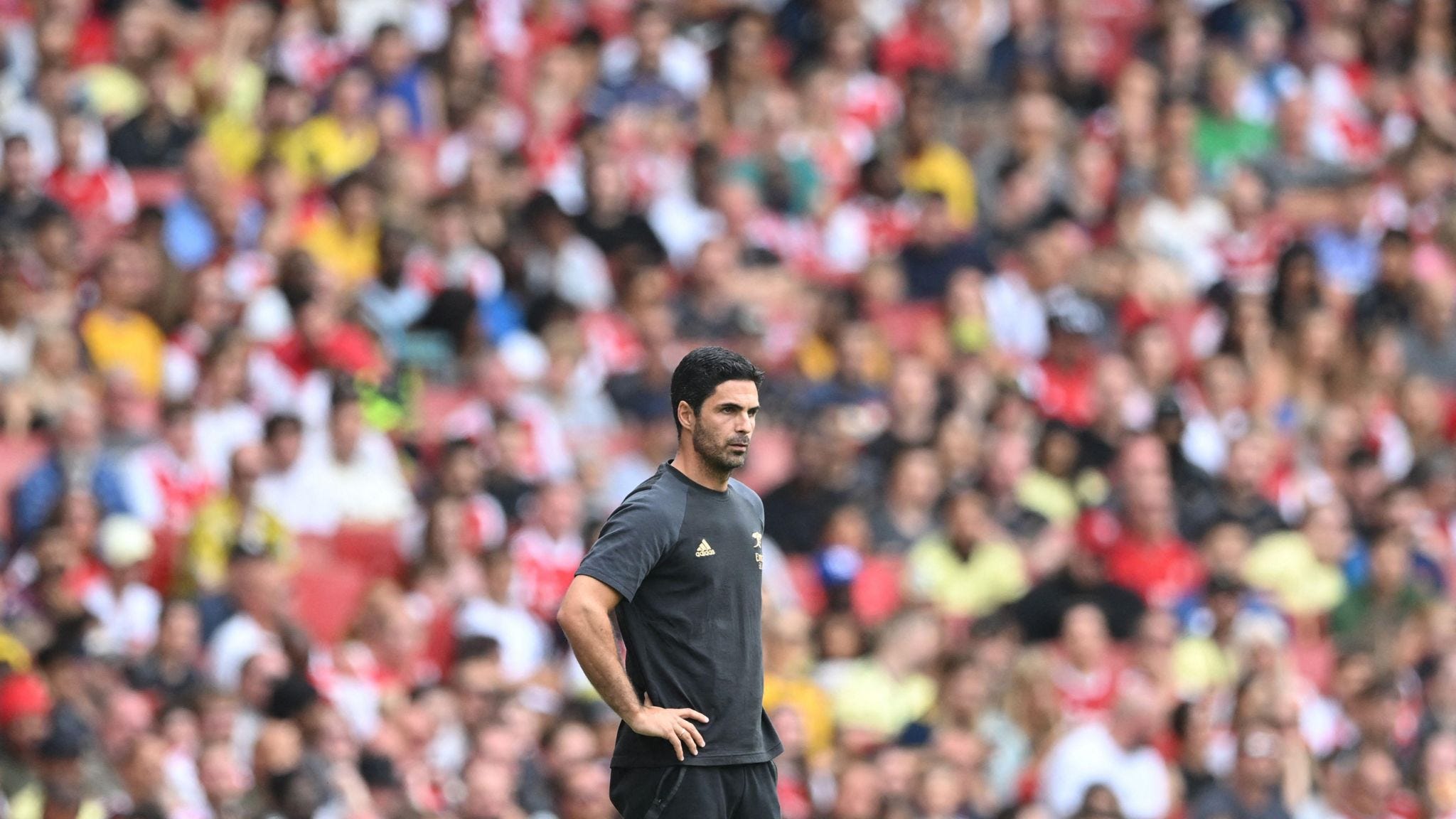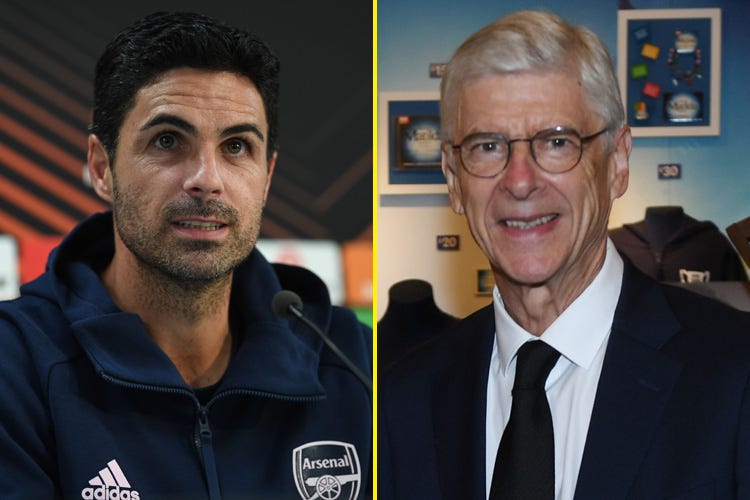What is the key to Arsenal's success? ~ Mikel Arteta, board backing and more.
Arsenal have been the success story of the Premier League this season and currently sit top of the table, but what has been the key to this kind of success?
Arsenal’s inconceivable achievements this season merit their plaudits and praise and have been a reflection of numerous things, both on and off the pitch. Following mediocre Premier League finishes in recent years under a variety of managers, Mikel Arteta had a huge job to do.
Since Arteta’s arrival from Pep Guardiola’s backroom at Manchester City, he begun a rebuild period for Arsenal, and did this by shifting any players deemed as ‘dead-wood’ at the club. As his first August transfer window approached, Arteta decided to trim his squad of any players that would not fit his philosophy of controlling, young and entertaining football. Players that departed the club were Mesut Ozil, who had received little game time by Arteta, Shrokdran Mustafi, Henrikh Mkhitaryan, Sead Kolasinac, Sokratis and Emiliano Martinez. The players brought in as replacements Thomas Partey of Atletico Madrid, Brazilian defender Gabriel Magalhaes of LOSC Lille in Ligue 1, Martin Odegaard from Real Madrid on loan, Pablo Mari from Flamengo, Cedric Soares on a free transfer and Willian on a free transfer in order to add some experience to the side.
Of the players signed in the 2019/20 August transfer window, just 3 were over the age of 26 (Thomas Partey, Cedric and Willian). This season for Arteta marked the beginning of a rebuild era at Arsenal, giving players like Bukayo Saka and Emile Smith Rowe a greater chance in the league. Arsenal finished in 8th in the 2019/20 season and many fans and YouTube channels were calling for Stan Kroenke to sack Arteta. However, the Arsenal owners stuck by Arteta despite the league finish and backed the Spaniard in the following transfer window, as Arsenal brought in Ben White, who had just helped Leeds gain promotion to the Premier League, Martin Odegaard joined permanently from Real Madrid, Aaron Ramsdale joined from newly relegated Sheffield United, Takehiro Tomiyasu was signed from Italian outfit Bologna, Albert Sambi-Lokonga was signed from RSC Anderlecht and highly rated left-back Nuno Tavares from Benfica. Every signing made during the 2020/2021 season was 23 years old or younger, the eldest being Ramsdale and White (both 23 years old) whilst the youngest were Sambi-Lokonga and Tavares, both 21 years old.
It became apparent that Arteta was attempting to bring in players that could serve either as immediate starters or as backups, gaining experience as the season went along. Players such as Ramsdale and Odegaard brought in Premier League experience, as Odegaard was at the club the previous season and Ramsdale served for both AFC Bournemouth and Sheffield United in the Premier League prior to joining the club. Ben White had Championship experience with Leeds United whilst on loan from Brighton, and acted as a key figure during Leeds’ promotion bid. Tomiyasu had valuable top flight experience in Italy with Bologna and had been linked with the likes of Tottenham and West Ham. Tavares and Lokonga, both being the youngest players to join, were seen as backups. This is also the season we got an insight into the Arsenal dressing room and behind the scenes, as Amazon Prime covered Arsenal’s season with their ‘All Or Nothing’ documentary, and many found Arteta’s tactics, dressing room team talks and overall management very impressive for someone who had not been in the managing game for many years.
In the All Or Nothing documentary, produced by Amazon Prime, we saw Arteta’s unique way of getting his players ready for specific games, which included a large speaker playing ‘You’ll Never Walk Alone’ before the game against Liverpool, as well as his ‘light-bulb’ team talk after their Crystal Palace defeat. The Spaniard ordered that the team gather in a circle whilst he stood in the middle.
“Edison invented the light bulb. Today, I want to see a team that is connected because a bulb by itself is nothing. I want to see a team that is connected with each other and that shines and you want to transmit to him light and energy and passion and how you play football and you do the same. I need you first to play the game connected, because what happens when we play connected guys? What is the next thing that happens? When we connect with 60,000 people (the fans) that creates more energy. Because in the end it is electricity, that through heat, creates light and life. Because you know it will be f**king dark if this guy wouldn’t have the idea to do that and I want you to play like this today because as good as we are, it depends on one thing - what makes us special is our attitudes and today I want you to play with that attitude; I want you to go out there, f**king turn the light on and play football.”
This is just one of Arteta’s many unique styles of tactic, as he looks to challenge the norm.
As we have seen during the All Or Nothing documentary, Arteta aims to motivate his players at half time and encourage them rather than criticise and perhaps bring down players. He has instilled a sense of togetherness with this Arsenal squad and it seems like every player understands each other and wants to help each other; this is a group of players, not a group of individuals like we may have seen at Arsenal before Arteta’s appointment, with certain players staining the dressing room.
Taking a step away from the tactical brilliance of Arteta, there is the personal side of the story. Relationships with the players is key for any manager to sustain a healthy and positive dressing room, even in the darkest of times. Quoting the All Or Nothing documentary again, Eddie Nketiah was interviewed by Amazon Prime as he vented his frustrations of a lack of game time. It is in the clip afterwards we see Arteta pull Nketiah aside from training to help him on his close control as a defender approaches him, whilst he states that Nketiah is a player that always strives to become better and to become the starting number 9 of Arsenal; Arteta gave him the opportunity to start consecutive league games for the first time that season as a result of this motivation to become better, whilst impressing in training.
As a result of the unique tactics set by Arteta, the togetherness of the dressing room and the motivation and determination instilled by Arteta, Arsenal finished in a Europa League spot during the 2021/22 season. The Gunners began the 2022/23 summer transfer window with the signings of Manchester City duo Gabriel Jesus and Oleksander Zinchenko, Fabio Vieira from FC Porto, Matt Turner from the MLS to serve as a backup to Aaron Ramsdale as well as Marquinhos, a highly rated Brazilian from Sao Paulo. Arteta’s side began the season winning 5 games from 5, against the likes of Crystal Palace, Leicester City, Bournemouth, Fulham and Aston Villa. Their run came to a halt against Manchester United, where they lost 3-1 at Old Trafford. However, since that day in Manchester, Arsenal haven’t lost a single league game, and have won against the likes of Liverpool, Tottenham Hotspur, Chelsea and even won the reverse fixture against Manchester United yesterday (at the time of writing). Arsenal currently sit top of the Premier League table and are 5 points clear of Manchester City with a game in hand on Arteta’s former mentor, Pep Guardiola. With the acquisition of Leandro Trossard from Brighton and Hove Albion, Arsenal are adding to their already illustrious depth at the club, whilst keeping to the philosophy installed by Arteta of young, controlling and proven at a high level.
Arteta is using the philosophy of former Arsenal manager Arsene Wenger; it was Wenger who said that “Arsenal do not buy superstars - we make them”.





